Leveraging Blockchain to Transform the African Indigenous Vegetable (AIV) Value Chain in Western Kenya
“Now, I finish my work at 10 am instead of 3pm. … I can use my time to work on other crops, to be [a] better mother and serve the community,” explained a local farmer who is a participant in the USAID LASER PULSE project focused on exploring how blockchain technology could improve food security through the sale of African Indigenous Vegetables (AIVs) in Western Kenya.
Over the past two years, a team from Virginia Tech, Egerton University, and the Australian startup AgUnity have been studying the AIV value chain in Kakamega county, to determine if a new blockchain-based smartphone app could help improve livelihoods, nutrition, and value chain efficiency for last-mile agricultural communities. The V3 Super App developed by AgUnity builds on the distributed ledger functionality of blockchain to establish a secure record keeping system for all transactions that occur along the value chain. Each time a buyer and seller agree on the cash price for a certain amount of a vegetable, they both capture and approve this transaction in their app, which creates a block of information that is added to the blockchain. This blockchain information is immutable, giving users confidence that their records of transactions are accurate and reliable. It is also able to create traceability of information along the value chain, communicating characteristics of the vegetables from producer through to consumer.
View the video: https://youtu.be/_eXEL2dj2ik
“Since providing over 50 phones to farmers, traders, and retailers, we have observed a number of significant results,” explained Dr. Ralph Hall, the PI of the project at Virginia Tech. “One of the most important findings is the enhanced trust and transparency that project participants have reported, which has been translated into time savings and market efficiency. By helping farmers connect with retailers and traders, and traders with retailers in urban and peri-urban markets, the time spent trying to find buyers for the AIVs has dropped significantly.” One farmer in Kakamega described this benefit: “Normally, I had to hawk around the market for the whole day to find buyers, now it is so swift. I know already who to trade veggies to, and the buyer fetches the goods.”
This enhanced efficiency was made possible by ensuring all actors along the value chain had access to the blockchain app on a smartphone. As participants began to regularly trade with one another, they also used their phones to communicate and set up trades. As one farmer commented, “I easily reach out [to] traders by phone and confirm price and quantity, so I spend less time looking for buyers.” The blockchain app has also helped reduce corruption and exploitation from dishonest traders, by creating trusted networks of actors who are held accountable by the App, which helps standardize the weights of the vegetables sold and increases access to reliable market information.
Another important insight from the project is the value customers place on safely-produced vegetables. “In our value chain analysis, we found that customers were willing to pay a price premium of between 5 to 30 shillings for a bundle of Grade A vegetables,” said Dr. Jessica Agnew, the co-PI of the project at Virginia Tech. “Given this finding, we started working with value chain actors to separate their vegetables into Grade A vs. B, with Grade A vegetables being those that are free from inorganic fertilizers or pesticides and free from damage from pests or diseases. This product differentiation translated into improved incomes from the sale of AIVs for 85% of the farmers engaged in the project.” Producers engaged in the project also organized themselves into groups and independently pursued training from other local organizations on how to produce organic, high-quality vegetables so they could capture the Grade A price premium more regularly.
During the six-month implementation of the blockchain App, nine out of ten participants reported increasing their consumption of AIVs and the number of individuals reporting they went a whole day without eating in the previous month dropped by one half (from 11 to 5). These preliminary results indicate the potential for blockchain technology to transform agricultural value chains in ways that can enhance food security.
Looking ahead, the Virginia Tech, Egerton University, and AgUnity team are exploring complementary services that can be provided via the V3 Super App, such as offering farmers extension services relating to sustainable agricultural practices or enabling farmers to access credit or e-vouchers to invest in the expansion of their operations. The platform could also be used to share information about the high nutritious value of AIVs – which include African Black Nightshade, Cowpea, Spider Plant, Amaranth, and Jute Mallow – and how they can be prepared into tasty and culturally appropriate dishes that retain this nutritional value.
Finally, the introduction of the blockchain app into the AIV value chain in Kakamega county generated significant interest in the technology and made participants, especially women farmers, feel empowered. Two noted that “We are now proud in selling AIVs” and “… are proud to be digital women.”
For more information, please feel free to contact Ralph Hall (PI), Jessica Agnew (co-PI – Virginia Tech), Joseph Mwangi (co-PI – Egerton University) or Nurvitria Kristofikova (AgUnity Program Lead).

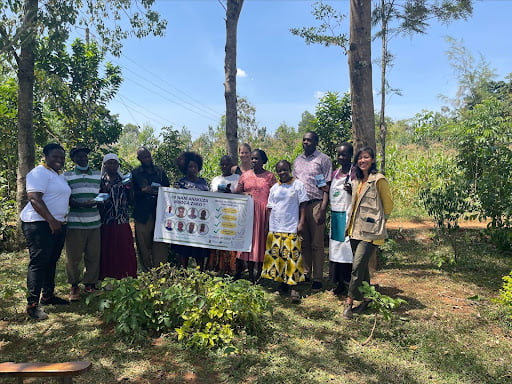
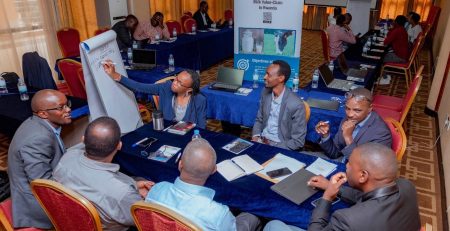
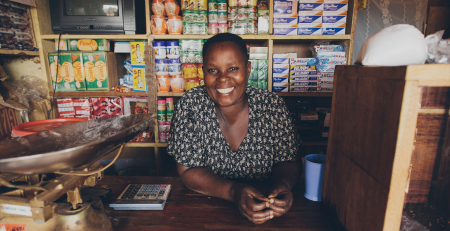
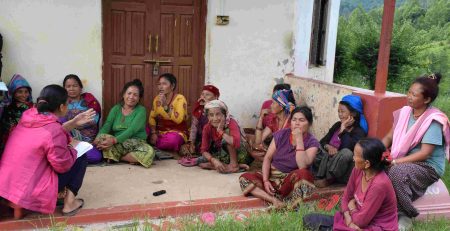
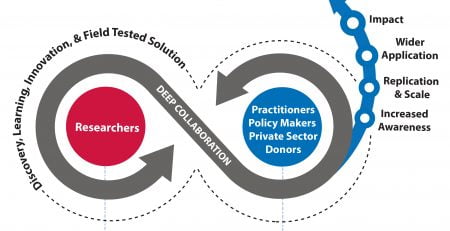
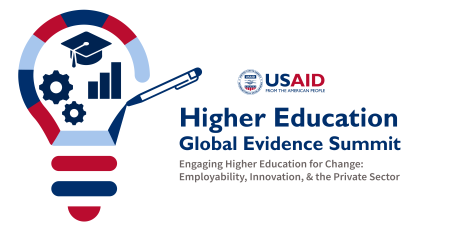
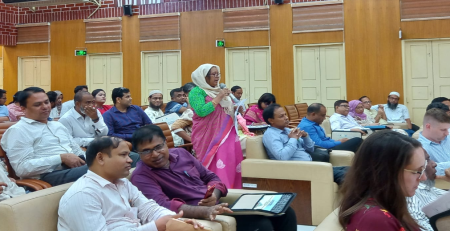

Comment (1)
[…] fighting issues surrounding the barriers to food security on different levels. This article on the LASER PULSE program and their work in relation to AIV is a great example of this new Meta […]